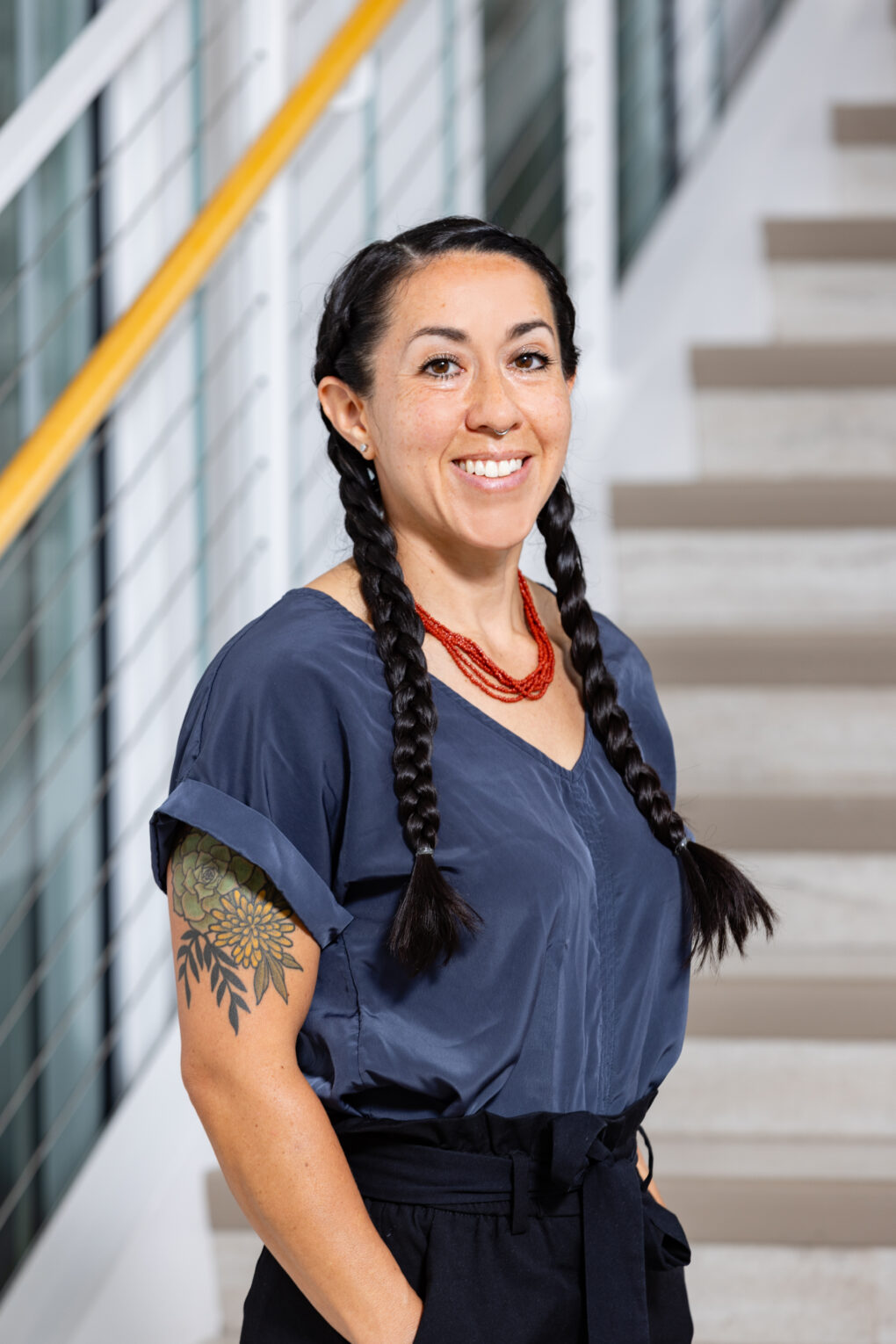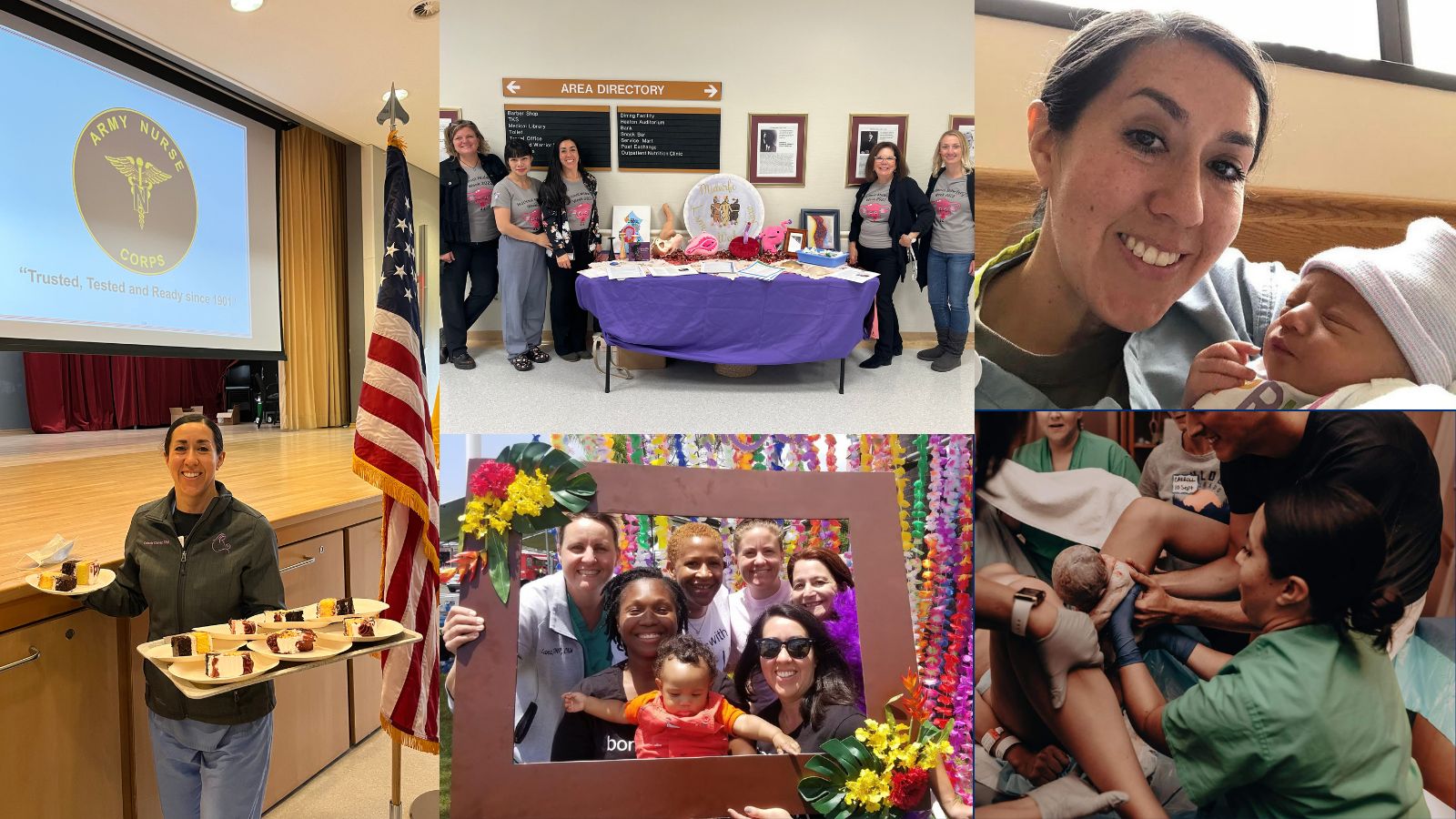I first encountered midwifery through an article in Adbusters. At the time, I didn’t think much of it, but it clearly made an impression on me. The first time I considered midwifery as a career was after watching the documentary, “The Business of Being Born.” Although I didn’t have the language for it then, I found the concept of reproductive justice intriguing. The conversations around me focused on abortion and access to contraception in relation to reproductive health. While important, those conversations failed to capture the breadth of women’s health across the lifespan. The documentary was the first time I saw providers supporting families’ birthing choices.
As a student midwife I worked at a Chicago based homebirth practice and was able to support over 100 families. That experience empowered me and gave me the foundation to trust the birth process and the power of women. During the final year of my midwifery program, COL. (ret) Michelle Munroe sat in our class and told us how great it was to be a midwife in the Army. Though I never saw myself in the Army, I was and remain committed to the idea that everyone deserves a midwife. I firmly believe that the midwifery model of care can positively impact patients and their families for generations.
I commissioned from midwifery school and was stationed at Tripler Army Medical Center (TAMC) in Hawaii as one of 45 Army Nurse Corps midwives. Early in my career I started noticing the disclosure of childhood sexual abuse, sexual assault, and military sexual assault documented in patient charts, taking note of how this manifested in their clinical presentation. This led me down a path of learning about the ways the body stores trauma. I was intrigued by the way we process and heal from trauma. While at Tripler I trained as a Sexual Assault Medical Forensic Examiner (SAMFE) and learned more about the military’s Sexual Assault Prevention and Response Program (SAPR).
The reproductive justice framework which came out of the Combahee River Collective, “is the human right to maintain personal bodily autonomy, have children, not have children, and parent the children we have in safe and sustainable communities.” We can create safe and sustainable communities only through healing.
I was certain that after I completed my initial three-year commitment to the Army I would be leaving. Much to my surprise, I found taking care of servicemembers and their families to be a great privilege and honor. Military members face many unique challenges, made more profound when growing their families. Servicemembers face geographic isolation from their families and support systems, and many spouses struggle with employment, childcare, and supporting their deployed partners, often parenting alone and dealing with frequent moves. Being able to be a source of support to this vulnerable community brings me great joy and my patients motivated me to stay in the Army and continue my work.
After almost four years in Hawaii, I received orders to Landstuhl, Germany, in the midst of the COVID-19 pandemic. Like many others, I faced a difficult time due to travel and hospital restrictions that forced many people to give birth alone and further isolated others.
While at Landstuhl I primarily provided maternity care but continued to think about sexual trauma and more broadly, about combat trauma, and some of the protective and aggravating factors to developing adverse long-term health outcomes, particularly among military members. Though my research focuses on military sexual assault, the military has provided me opportunities to remain rooted in reproductive justice. I was able to explore maternal and neonatal morbidity and mortality, which is disproportionally impacts Black women.
The military is a complex and diverse place, in constant flux, and am constantly impressed by my colleagues who commit themselves to creating policy and deliver care that moves military medicine forward. I have been incredibly fortunate to serve military families as a midwife and am grateful that I can continue that service in a new capacity as a nurse researcher.
Read More:
- Birth Companions Talk Doulas and Maternal Health with Mayor Brandon Scott
- Forging Policy: How Can Doulas Improve Black Maternal Health?
- Most People Want to Breastfeed, But Need More Support To Do So
About the Author: Celeste Chavez
Celeste Chavez is an active-duty Army midwife and second year PhD student. Her dissertation focuses on factors that impact decisions of servicemembers who have experienced military sexual assault. She is the president of the American College of Nurse Midwives, Uniformed Services Affiliate and Social Chair of the PhD Student Organization. She is an avid Crossfitter, enjoys yoga, gardening, and exploring any chance she gets.

